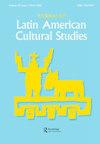Socialism with Bling: Aspiration, Decency, and Exclusivity in Contemporary Cuba
IF 0.3
4区 社会学
Q4 CULTURAL STUDIES
引用次数: 0
Abstract
This article engages a pervasive discourse on decency in twenty-first-century social mores and state prohibitions by examining artists’ work (2016–2019) that speaks to how material culture and aesthetic judgment feed into the aesthetic hegemony of the Cuban state. Attention is paid to three cases that unravel a national and international staging of a universal “decent” Cuban culture in the post-Obama era: (1) the 2017 intervention Where is Mella? by “amateur” artist Luis Manuel Otero Alcántara, who called attention to the Cuban military’s commercial alliance with Kempinksi, the Swiss/German hotel group, critiquing Cuba’s new landscape of luxury; (2) Pluto (2016), video art by Geandy Pavón that alludes to a chain of embezzlements and substitutions; and (3) the performances of two “amateur” musicians: Chocolate MC, who, though popular, is also deemed repulsive on both sides of the Florida Straits, and Cimafunk, celebrated as a cultural ambassador. A contemplation on “excess” – a 5-star hotel, junk jewellery, or bling bling – allows for questions of who the Cuban state recognises as an artist, how artists appropriate and expropriate ideas of luxury and refinement, and whether these substitutions can sufficiently erode colonial legacies that continue to contain those subjectivities perceived as excessive.华而不实的社会主义:当代古巴的抱负、体面和排他性
本文通过研究艺术家的作品(2016-2019),对21世纪社会习俗和国家禁令中的得体进行了普遍的讨论,这些作品讲述了物质文化和审美判断如何融入古巴国家的审美霸权。本文关注了三个案例,它们揭示了后奥巴马时代普遍的“体面”古巴文化在国内和国际上的表现:(1)2017年的干预行动:梅拉在哪里?“业余”艺术家路易斯·曼努埃尔·奥特罗Alcántara,他呼吁人们关注古巴军方与瑞士/德国酒店集团凯宾斯基(Kempinksi)的商业联盟,批评古巴的新奢侈品格局;(2)《冥王星》(Pluto, 2016), Geandy Pavón的录像艺术作品,暗示了一连串的盗用和替代;(3)两位“业余”音乐家的表演:朱古力·MC,他虽然很受欢迎,但在佛罗里达海峡两岸都被认为是令人反感的,还有被誉为文化大使的西马芬克。对“过度”的思考——五星级酒店、垃圾珠宝或珠光珠光——让人想到古巴政府承认谁是艺术家,艺术家如何挪用和剥夺奢侈和精致的想法,以及这些替代是否能够充分侵蚀殖民遗产,这些遗产继续包含那些被认为是过度的主观性。
本文章由计算机程序翻译,如有差异,请以英文原文为准。
求助全文
约1分钟内获得全文
求助全文

 求助内容:
求助内容: 应助结果提醒方式:
应助结果提醒方式:


